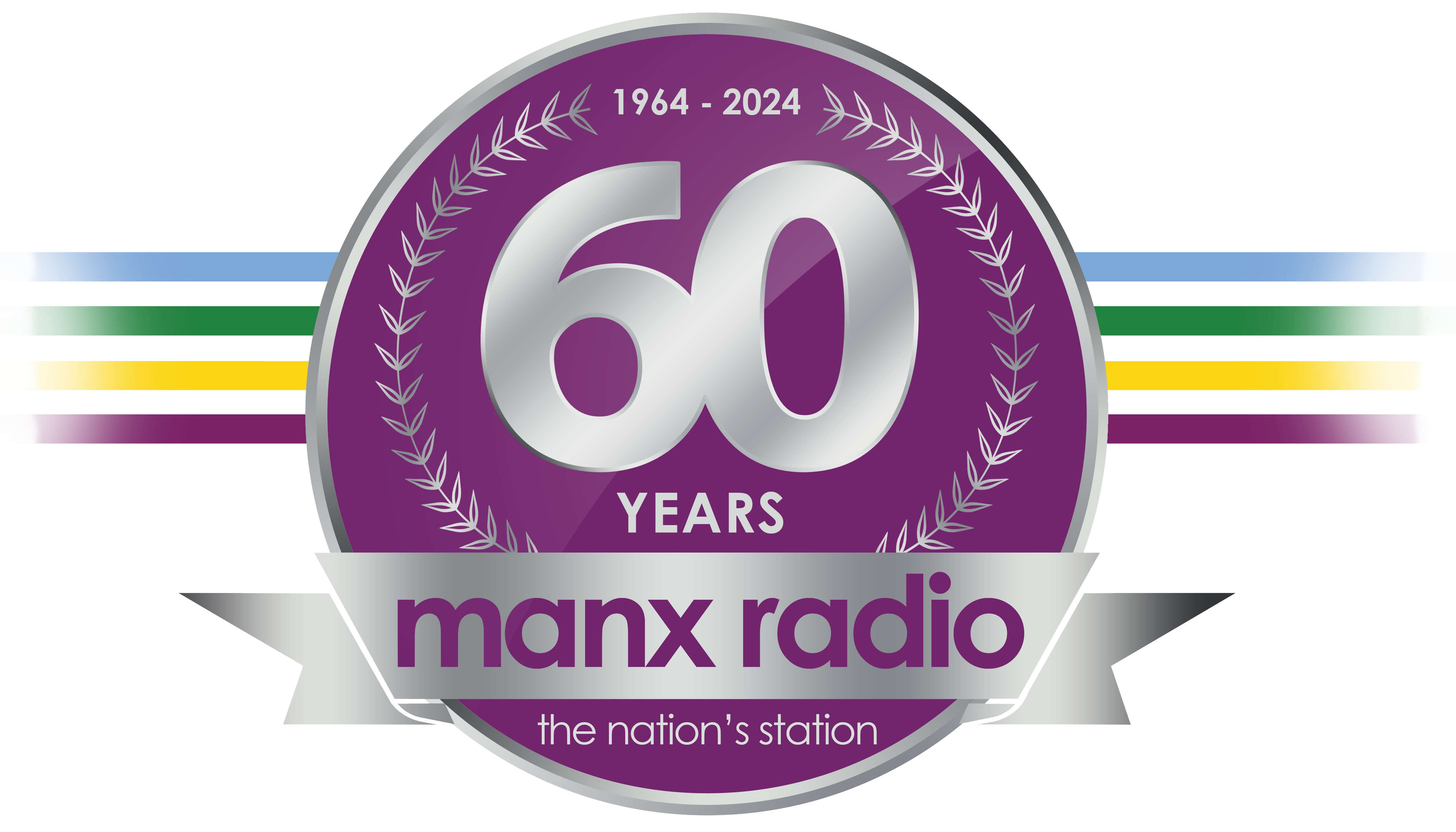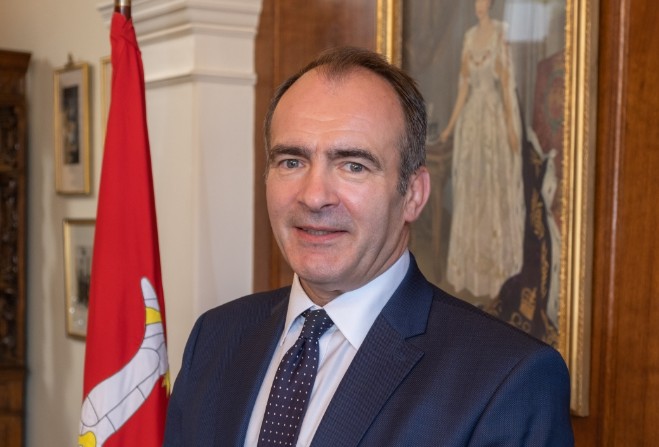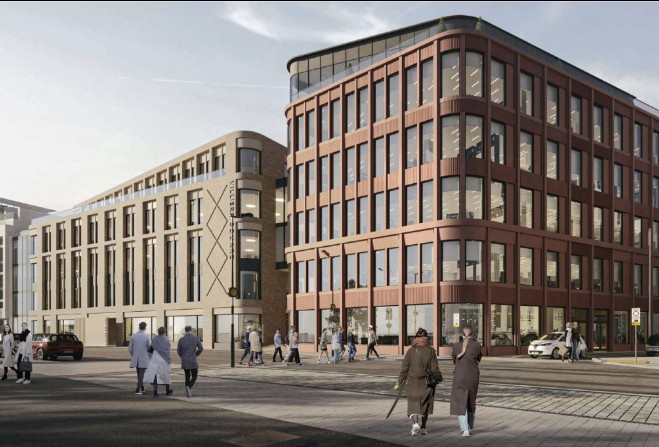
Marginal changes to help lowest paid
There is to be no change to the Isle of Man’s headline tax rates of 10% and 20% in the 2016-17 budget but some minor tinkering with allowances and banding.
The Treasury minister last year signaled he favoured a single £14,000 personal allowance as a way to take some of the lowest paid out of the tax net altogether.
However, this year’s tax receipts have come in below budget, partly due to falling investment income and lower bank profits – leaving Mr Teare with no room to make the change.
However he says he’s taken a small step along that path, ‘going as far as our current income allows’.
Uplift to personal tax allowance
Personal allowances will increase by £1000 to £10,500, a move expected to lift 2000 low-paid out of the tax net, and reduce bills for a further 19,000.
While the upper and lower rates of income tax remain unchanged, the sum an individual can earn before the higher rate applies has been reduced from the current £10,500 limit to £8,500.
Treasury says the reduction will be offset by the raised personal allowance and no tax payer is expected to be worse off as a result.
Individual allowances
Allowances against tax for single parents, blind and disabled people remain unchanged in the budget.
The Personal Allowance Credit remains at £400 per individual and will be paid to those whose income for the year ended 5 April 2016 was £9,500 or less.
The age allowance for residents aged 65 or over at the start of 2016-17 is pegged at £1000.
Wealthy individuals resident in the Isle of Man will benefit from a maximum tax cap of £125,000 from 2016-17, the same level enjoyed by those who ‘elected’ for a five year tax cap in the 2015-16 tax year.
Non-taxed relocation expenses paid by an employer to attract new staff to the Island are increased to £20,000.
A land development tax holiday will offer exemption from income tax for up to five years for new commercial developments that create employment.
Anti-avoidance measure
The Treasury minister has ordered a clampdown on residents who avoid Manx income tax, with the introduction of a new penalty.
Having become ‘increasingly concerned with some tax planning currently taking place’ Mr Teare has asked the Assessor of Income Tax to draw up measures ‘to ensure each tax payer pays their fair dues’, which will start with a consultation.
Social security benefits and pensions
The total cost of pensions and benefits for 2016-17 is in the region of £279 million, equivalent to 28% of government’s total gross expenditure. £200 million of this will be directly funded by NI contributions, with the balance paid from general revenue.
The Treasury minister offers no largesse - or even a modest uplift - this year, with rates for most benefits pegged at current levels. In effect that is a standstill for those in receipt as the negative inflation trend prevails.
State pensions will go up by 2.9% from April this year, an increase of £3.35 per week for those on the full basic pension.
Income support for the poorest pensioners will increase by £5 per week There will be no increase in the rates of additional state pension, the Manx pension supplement or the retirement pension premium.
No increase in other NI-funded benefits and allowances, including bereavement benefits, incapacity benefit, jobseeker’s allowance and maternity allowance.
Income support, income-based Jobseeker’s allowance and employed persons allowance – no increase.
Families - Child benefit rates remain at current rates and there is no change to the current income test. The maximum allowed for housing costs will rise by 2.6% in line with the rise in public sector housing rentals from April this year.
Disability benefits - the rates of attendance allowance, disability living allowance, carer’s allowance, severe disablement allowance and industrial injuries disablement benefit are not changed.
Public sector pensions
It is well-known the rising cost of paying former government employees is pressing government finances hard. In his budget Mr Teare describes it ‘as the single largest risk to efforts to fully re balance the budget and reduce reliance on reserves’.
Put simply, the scheme needs more money and employers are the Treasury minister’s target in this budget. Their contributions will rise to 15% in April and be phased up to 20% over five years.
As government is the employer, these additional payments will be made by employing departments, putting further pressure on their ability to spend elsewhere.
The government’s six year projection includes annual an annual draw down from the public sector pension reserve, this year’s sum £45 million.
The growing shortfall will see the reserve raided to the tune of £63 million in 2021-22 by which time the reserve will be depleted.
On the positive side it’s thought schemes are maturing for the majority of current members within 15 years of their planned retirement age.
After the ‘hump’ of retirements has passed, a new regime will be in place, assuming wide-ranging reforms are agreed , which will see an intake of younger members having to work longer before retiring, and paying more for their pensions.


 Hopes for better working relationship between government and hospitality sector
Hopes for better working relationship between government and hospitality sector
 'A lot of work to do' on low income housing
'A lot of work to do' on low income housing
 Public servants killed in the line of duty eligible for new award
Public servants killed in the line of duty eligible for new award
 Multi-million pound Villiers development recommended for approval
Multi-million pound Villiers development recommended for approval
 IoM 'must use voice on international stage'
IoM 'must use voice on international stage'
 Rosalind Ranson row draws to a close
Rosalind Ranson row draws to a close
